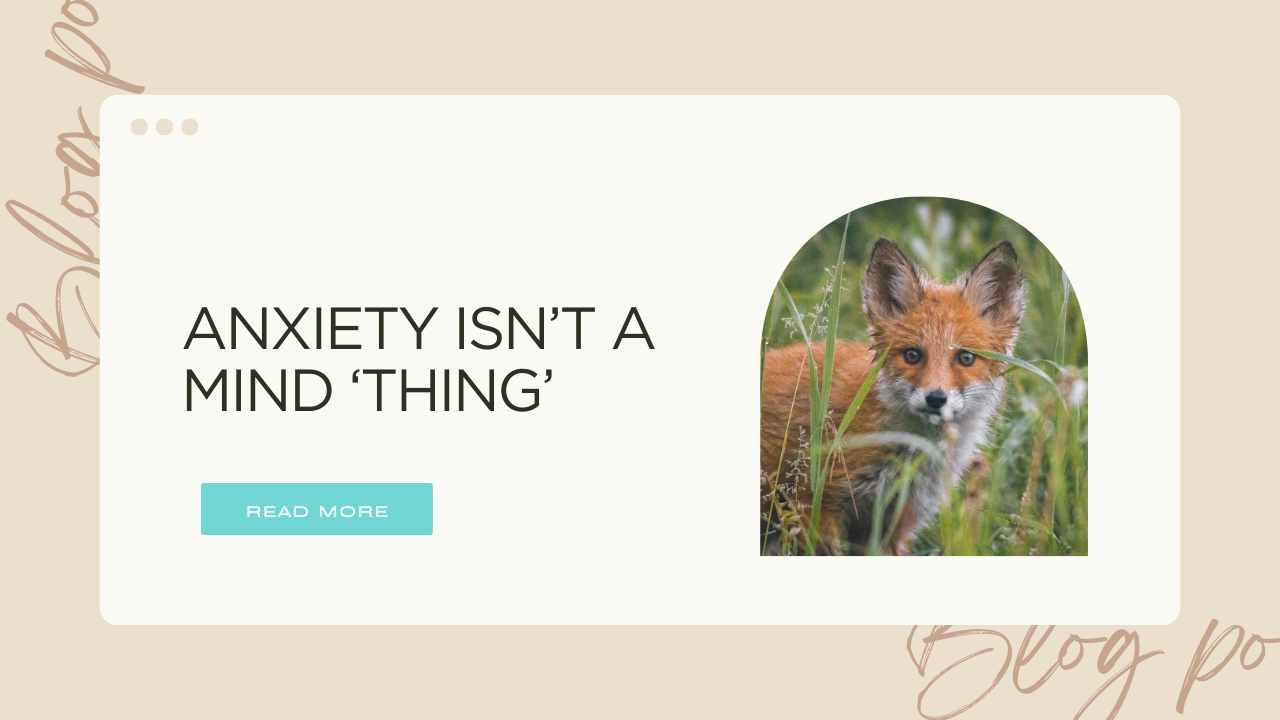
Anxiety isn't a mind 'thing'
I used to believe that when I was anxious it was purely to do with my mind, and I think a lot of us who experience anxiety feel this way - that it’s all in our heads. When we view anxiety as a mind thing we also believe that in order to ‘master’ it we have to learn how to train our thoughts, to rationalise them, to control them.
However after studying Polyvagal Theory and the role of our nervous system, I learnt that anxiety is not about mind mastery at all, rather it’s a survival response of a hypervigilant nervous system that has shifted you into a state of protection. Thoughts are just one symptom of this survival response, and if you only focus on trying to ‘deal’ with your thoughts without addressing the underlying nervous system imbalance, you’re simply trying to heal a symptom without addressing the root cause. This is why when you feel anxious, solely trying to talk your way out of it never seems to work.
If you stop for a second and think back to the last time you felt anxious you’ll notice that it shows up in the body – tightening around the chest and shoulder area, shallow breathing, fast breathing, heart palpitations, wide eyes, and then yes racing thoughts follow. All of these symptoms are designed to put your body into a state of alertness, because it believes safety comes from always being on the lookout, bracing you for the perceived threat, and always considering future scenarios so you can plan accordingly.
This can develop for many reasons, most often it starts in our earlier years when faced with stress, overwhelm, or traumatic experiences, in which you didn’t have adequate tools, knowledge, or support to help you safely address what you were experiencing. As a result, your nervous system used anxious feelings and symptoms to help you at this time.
Maybe feeling anxious helped you….
- Turn up early to things so you felt prepared
- Feel on edge and alert, so you could take action as soon as needed
- Plan through every possible scenario in advance so you could relax
- Stay home where it felt comfortable instead of going out to social events that felt too much
- Feel like you were in control of the situation
- Do everything quickly so you would please others or look good/perfect
- Feel distracted so that you never had to sit with your feelings
If left unaddressed this anxious response to stress becomes habitual and your nervous system’s default coping mechanism whenever a situation feels similar to the past.
Therefore when it comes to anxiety, it’s not about control and mastery of yourself in these moments, it’s about learning to partner with your body and understanding what your system is needing in order to feel safe so that you can help guide it back into a state of regulation.
When you feel anxious practice asking - what are my key anxious symptoms, and what are they trying to communicate to me about the state of my nervous system right now and what I’m needing to feel safe?
When we shift from viewing anxiety as a mind thing to a whole body thing, it opens up an extremely effective and powerful pathway to healing.
With love,
Sarah x



